Filter by
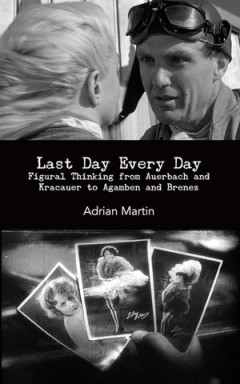
Last Day Every Day: Figural Thinking From Auerbach and Kracauer To Agamben an…
Where is film analysis at today? What is cinema theory up to, behind our backs? The field, as professionally defined (at least in the Anglo-American academic world), is presently divided between contextual historians who turn to broad formations of modernity, and stylistic connoisseurs who call for a return to old-fashioned things like authorial vision, tone, and mise en scène. But there are o…
- Edition
- -
- ISBN/ISSN
- 9780615719467
- Collation
- -
- Series Title
- -
- Call Number
- 791.43 MAR l
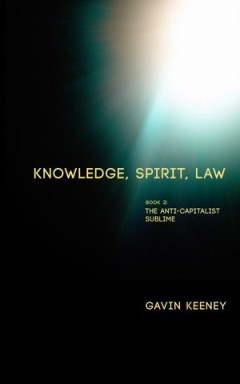
Knowledge, Spirit, Law, Book 2: The Anti-Capitalist Sublime
Knowledge, Spirit, Law // Book 2: The Anti-capitalist Sublime takes up where Knowledge, Spirit, Law // Book 1: Radical Scholarship (2015) left off, foremost in terms of a critique of neo-liberal academia and its demotion of the book in favor of various mediatic practices that substitute, arguably, for the one form of critical inquiry that might safeguard speculative intellectual inquiry as long…
- Edition
- -
- ISBN/ISSN
- 9781947447349
- Collation
- -
- Series Title
- -
- Call Number
- 791.43 KEE k
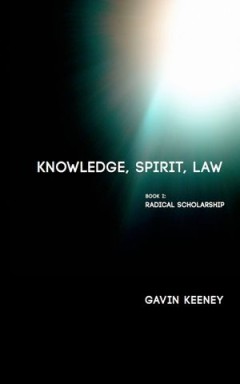
Knowledge, Spirit, Law, Book 1
Knowledge, Spirit, Law is a de facto phenomenology of scholarship in the age of neoliberal capitalism. The eleven essays (plus Appendices) in Book 1: Radical Scholarship cover topics and circle themes related to the problems and crises specific to neoliberal academia, while proposing creative paths around the various obstructions. The obstructions include metrics-obsessed academia, circular and…
- Edition
- -
- ISBN/ISSN
- 9780692558447
- Collation
- -
- Series Title
- -
- Call Number
- 791.43 KEE k
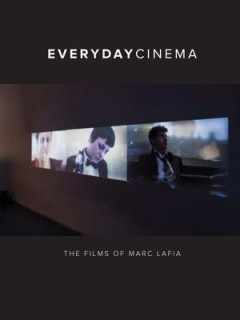
Everyday Cinema: The Films of Marc Lafia
Everyday Cinema presents the films (eight features and numerous shorts, computational, and installation films) of Marc Lafia. In his many films (including Exploding Oedipus; Love and Art; Confessions of an Image; Revolution of Everyday Life; Paradise; Hi, How Are You Guest 10497; and 27) Lafia probes what it is to construct an image, to forge systems of representation, to see and represent ours…
- Edition
- -
- ISBN/ISSN
- 9780998531809
- Collation
- -
- Series Title
- -
- Call Number
- 791.43 LAF e
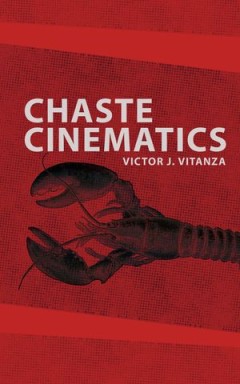
Chaste Cinematics
Victor J. Vitanza (author of Sexual Violence in Western Thought and Writing) continues to rethink the problem of sexual violence in cinema and how rape is often represented in “chaste” ways, in the form of a Chaste Cinematics. Vitanza continues to discuss Chaste Cinematics as participating in transdisciplinary-rhetorical traditions that establish the very foundations (groundings, points of …
- Edition
- -
- ISBN/ISSN
- 9780692541555
- Collation
- -
- Series Title
- -
- Call Number
- 791.43 VIT c
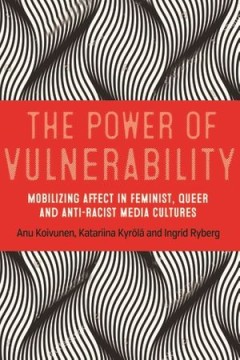
The power of vulnerability: Mobilising affect in feminist, queer and anti-rac…
The power of vulnerability interrogates the new language of vulnerability that has emerged in feminist, queer and anti-racist debates about the production, use and meanings of media. The book investigates the historical legacies and contemporary forms and effects of this language. In today’s media culture, traumatic first-person or group narratives have popular currency, mobilising affect fro…
- Edition
- -
- ISBN/ISSN
- 9781526133113
- Collation
- -
- Series Title
- -
- Call Number
- 791.43 POW p
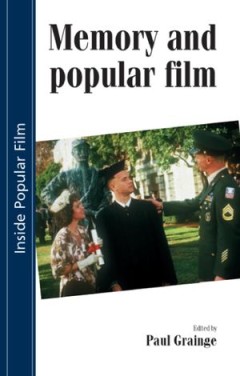
Memory and popular film
Memory and popular film' uses memory as a specific framework for the cultural study of film. Taking Hollywood as its focus, this timely book provides a sustained, interdisciplinary perspective on memory and film from early cinema to the present. Considering the relationship between official and popular memory, the politics of memory, and the technological and representational shifts that have c…
- Edition
- -
- ISBN/ISSN
- 9780719063749
- Collation
- -
- Series Title
- -
- Call Number
- 791.43 GRA m
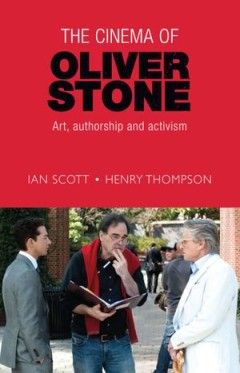
The cinema of Oliver Stone
This book charts and analyses the work of Oliver Stone – arguably one of the foremost political filmmakers in Hollywood during the last thirty years. Drawing on previously unseen production files from Oliver Stone’s personal archives and hours of interviews both with Stone and a range of present and former associates within the industry, the book employs a thematic structure to explore Ston…
- Edition
- -
- ISBN/ISSN
- 9781526147240
- Collation
- -
- Series Title
- -
- Call Number
- 791.43 THO c
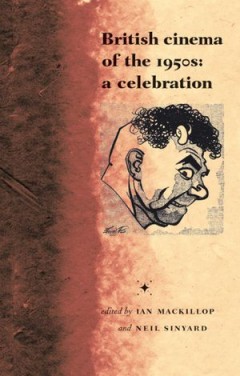
British cinema of the 1950s
This book offers a startling re-evaluation of what has until now been seen as the most critically lacklustre period of the British cinema. Twenty writers contribute essays that rediscover and reassess the productions of the Festival of Britain decade, during which the vitality of wartime film-making flowed into new forms. Topics covered include genres such as the B-film, the war film, the woman…
- Edition
- -
- ISBN/ISSN
- 9781526137272
- Collation
- -
- Series Title
- -
- Call Number
- 791.43 MAC b
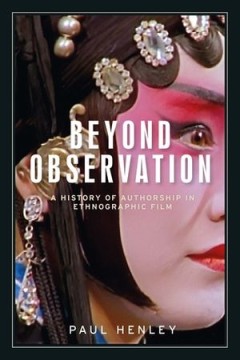
Beyond observation: A history of authorship in ethnographic film
Beyond Observation is structured by the argument that the 'ethnographicness' of a film should not be determined by the fact that it is about an exotic culture - the popular view - nor because it has apparently not been authored - a long-standing academic view - but rather because it adheres to the norms of ethnographic practice more generally. On these grounds, the book covers a large number of…
- Edition
- -
- ISBN/ISSN
- 9781526147295
- Collation
- -
- Series Title
- -
- Call Number
- 791.43 HEN b
 Computer Science, Information & General Works
Computer Science, Information & General Works  Philosophy & Psychology
Philosophy & Psychology  Religion
Religion  Social Sciences
Social Sciences  Language
Language  Pure Science
Pure Science  Applied Sciences
Applied Sciences  Art & Recreation
Art & Recreation  Literature
Literature  History & Geography
History & Geography